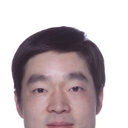Anti-inflammatory effect of Man-Pen-Fang, a Chinese herbal compound, on chronic pelvic inflammation in rats.
Keywords
Abstract
BACKGROUND
Traditional Chinese Medicine (TCM) has become the focus of research for the treatment of chronic pelvic inflammatory disease (CPID) based on unique medical theory system. Man-Pen-Fang (MPF), a Chinese herbal compound, which is composed of Thlaspi arvense L. (Cruciferae), Gleditsia sinensis Lam. (Leguminosae), Smilax china L. (Liliaceae), Euonymus alatus (Thunb.) Sieb. (Celastraceae) and Vaccaria segetalis (Neck.) (Caryophyllaceae) MPF has been used for the treatment of CPID and exerted significant clinical curative effects. However, the corresponding active principles and anti-inflammatory mechanism of MPF are still unknown.
OBJECTIVE
The objective of present study is to evaluate the effect of MPF on CPID in the chronic pelvic inflammation (CPI) rat model and elucidate its possible anti-inflammatory mechanism.
METHODS
The CPI in rats was induced by administration with E. coli, Staphylococcus aureus and Beta-hemolytic streptococcus. MPF (8.112g/(kg d) (20 times of adult dosage), 4.056g/(kg d) (10 times of adult dosage) and 2.028g/(kg d) (5 times of adult dosage)) and Jingangteng Capsule 2g/(kg d) (20 times of adult dosage) were administered orally for 20 days. The serum levels of five inflammation-associated cytokines (IL-2, IL-6, IL-10, TNF-α and TGF-β1) were determined by enzyme-linked immunoassay, and the mRNA expression levels of TGF-β1, P53, Fas, FasL and MMP-2 in the uterus tissue were measured by quantitative RT-PCR. Furthermore, the expression of NF-κB p65 in uterus and ovary tissues was detected by immunohistochemistry assay and the pathological changes induced in the uterus and ovary tissues were observed by histology.
RESULTS
MPF caused a reduction in serum levels of IL-2, IL-6, IL-10, TNF-α and TGF-β1. The expression of P53 mRNA, Fas/FasL mRNA and MMP-2 mRNA in the uterus tissue was significantly elevated after treating with MPF, in contrast the expression of TGF-β1 mRNA was decreased. Furthermore, the expression of NF-κB p65 in uterus and ovary tissue was inhibited after treating with MPF.
CONCLUSIONS
These results taken together suggest that MPF has a significant anti-CPID effect, probably due to inhibition of the inflammation reaction by the promotion, and the induction of the apoptosis of inflammatory cells and downregulation of the serum levels of inflammation cytokines.





